Seasonal Allergies: How to Identify Them and Find Relief
Did you know that 1 in 5 Canadians are affected by respiratory allergies such as allergic rhinitis? No wonder we are getting an influx of questions about seasonal allergies, which is why we have decided to answer some of the most requested questions about season allergies below.
What Exactly are Seasonal Allergies?
Allergies occur when your body’s immune system sees a certain substance as harmful. It reacts by causing an allergic reaction. The substances that cause them are called allergens. It could be something you eat, inhale into your lungs, inject into your body, or touch.
In response to allergens, the immune system produces an antibody called immunoglobulin E (IgE), releasing chemicals like histamine into the bloodstream. Histamine helps rid the body of allergens, causing symptoms such as sneezing, itching, hives and watery eyes.
What Are the Symptoms for Seasonal Allergies?
Allergy symptoms and their severity can vary from person-to-person. They can either develop quickly within a few minutes or over the course of a few hours.
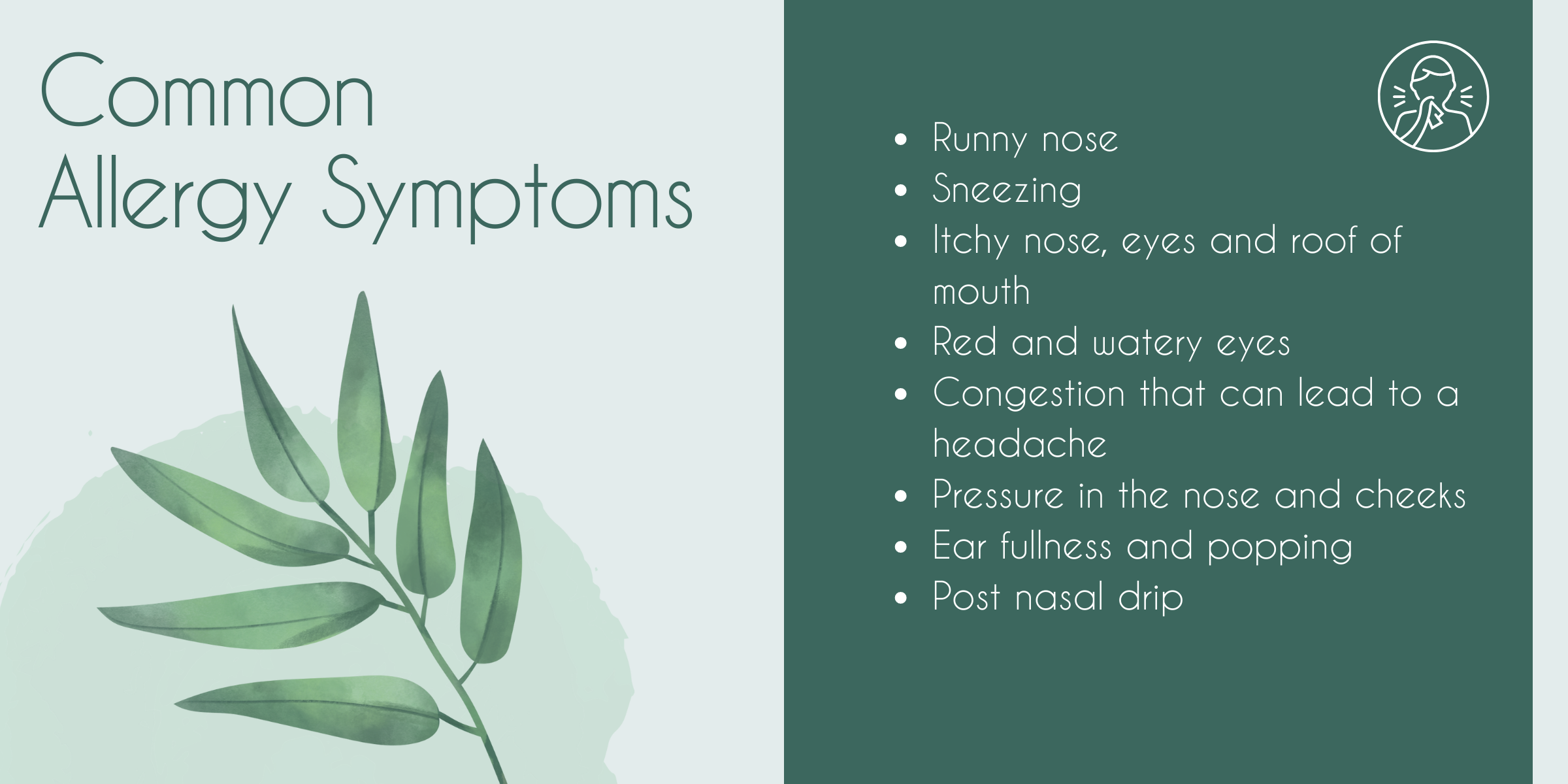
What if you Have a More Severe Allergic Reaction?
In rare cases an allergic reaction can become very severe – this type of severe reaction is called anaphylaxis.
The below list of symptoms are signs of anaphylaxis:
- Difficulty breathing
- Difficulty swallowing
- Swelling of the lips, tongue, and throat or other parts of the body
- Dizziness or loss of consciousness
If you think you are having an anaphylactic reaction use your self-injectable epinephrine and call 911.
Do not delay. Do not take antihistamines in place of epinephrine. Epinephrine is the most effective treatment for anaphylaxis.
If you have any questions about anaphylaxis, please contact your primary healthcare provider.
What Are the Treatment Options for Seasonal Allergies?
Managing symptoms of seasonal allergies can be a real task for people who suffer from them. While there is no cure for allergies there are over the counter and prescription treatment options available for individuals suffering with seasonal allergies. Please discuss these options with your healthcare provider, as your options will depend on how severe your reactions are and how much they affect your quality of life.
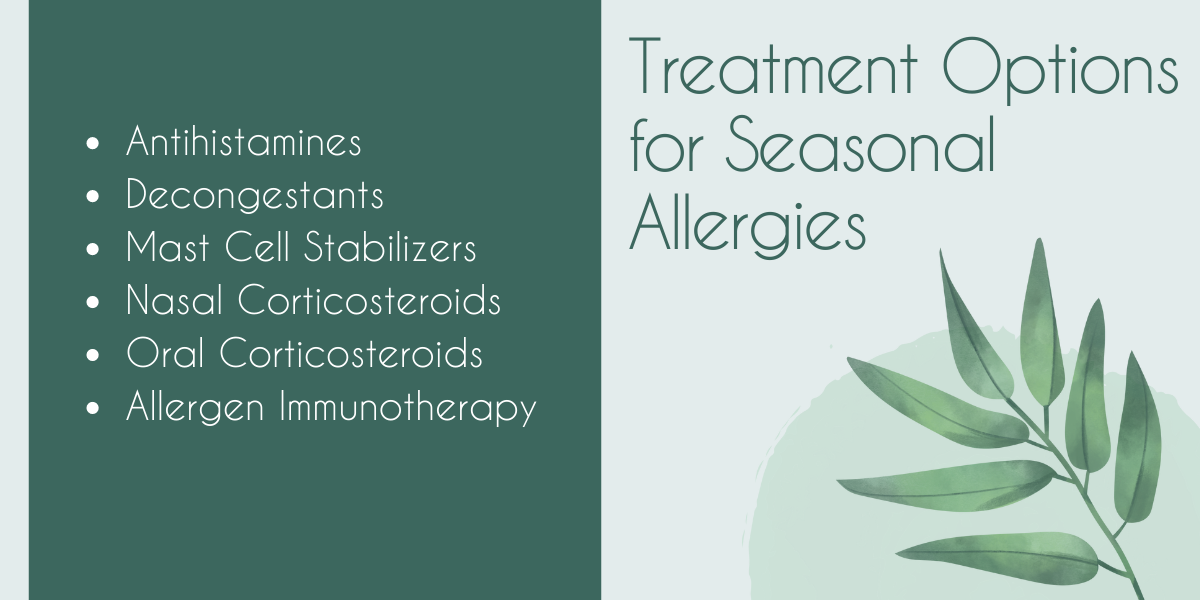
Antihistamines – Aim to provide quick relief of symptoms by lessening the effects of histamine. Can reduce sneezing, runny nose, watery eyes, and itchy throat temporarily.
Decongestants – These can help relieve a stuffy nose caused by allergies, by shrinking swollen membranes in the nose. Use these with caution as using these for more than three days in a row may cause swelling and stuffiness in the nose to get worse. Speak with your healthcare provider or pharmacist before using.
Mast Cell Stabilizers – keep your body from releasing histamine. Can help with itchy, watery eyes, runny nose. Come in nose sprays or eye drops.
Nasal Corticosteroids are nose sprays. They reduce swelling. Swelling causes a stuffy, runny and itchy nose. They are the most effective medicines for nasal allergies.
Oral Corticosteroids – Can reduce swelling and stop severe allergic reactions. Be careful as these medicines can cause some serious side effects. Your doctor will likely carefully monitor you while taking these medications.
Allergen Immunotherapy – If allergen avoidance and medical treatment for allergic rhinitis aren’t effective, allergy shots – also called allergen immunotherapy may be an option for you, but as this is a long term treatment we highly recommend discussing this option with your healthcare practitioner.
Are There More Natural Solutions?
The word Organic is the name of our pharmacy, naturally we get asked about more natural solutions and supplements to help treat seasonal allergy symptoms. The choice to go more natural can vary from negative reactions to traditional remedies to simple lifestyle choices. As always, we highly recommend consulting with your healthcare provider or pharmacist for the best advise. With that said, there are some supplements and nutraceuticals with powerhouse medical ingredients that can ease symptoms of seasonal allergies.
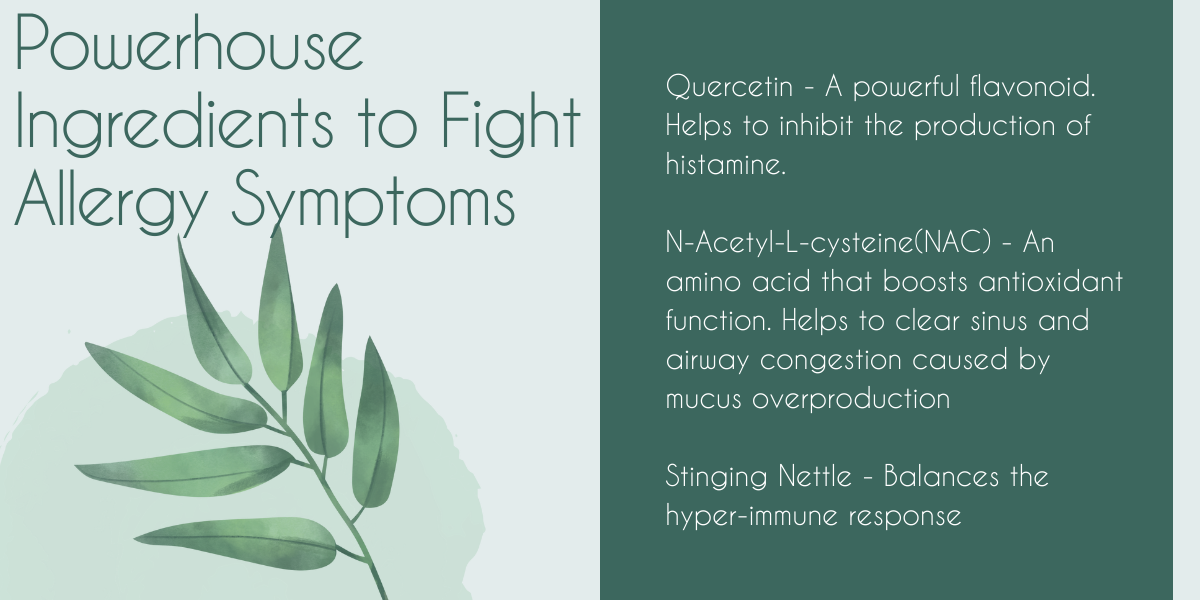
Can Seasonal Allergies be Prevented?
The best way to prevent an allergic reaction is to avoid the allergen. This might prove challenging, however there are some simple steps you can take to minimize exposure to seasonal pollens.
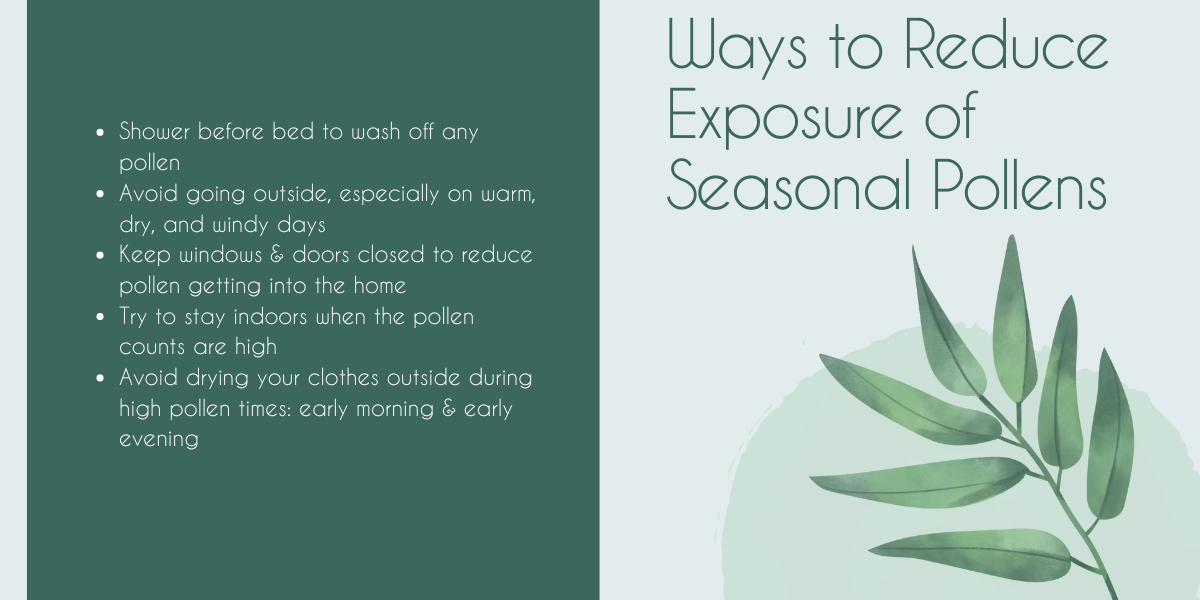
What is a Pollen Count and How Does it Affect Me?
You can also check the current pollen levels in your location with the help of a pollen count which measures how much pollen is in the air. Typically there will be a higher pollen count on breezy, dry and warm days and in the morning time – one resource that is easy to use is the Weather Network where you can monitor your local pollen count and plan your days accordingly.
Discuss the best medication for treating your allergies with your healthcare provider.
In some cases, you may not even have identified exactly what causes your allergic reaction. It may be helpful to make a note of what the symptoms are and when they occur before discussing it with your healthcare provider.
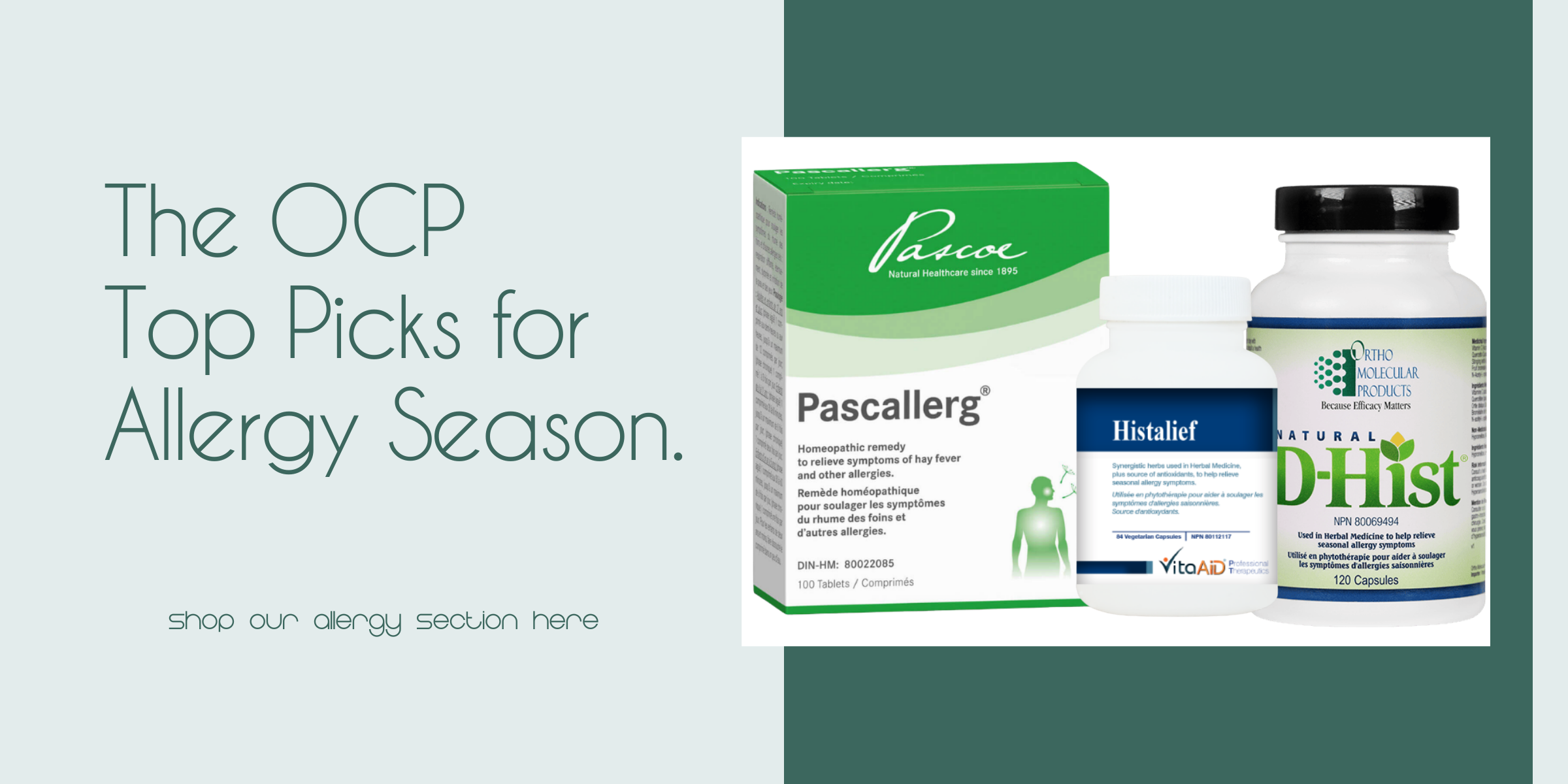
Sources used for the above article and resources for further research: AAFA & Asthma Canada.

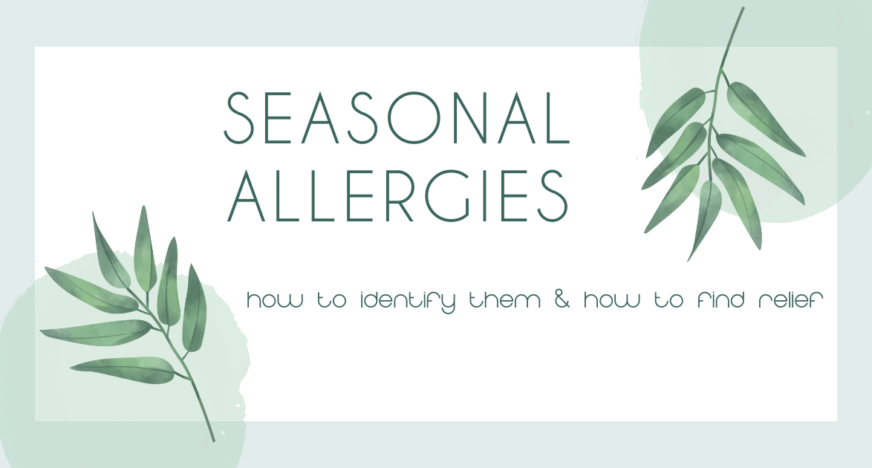
0 Comment